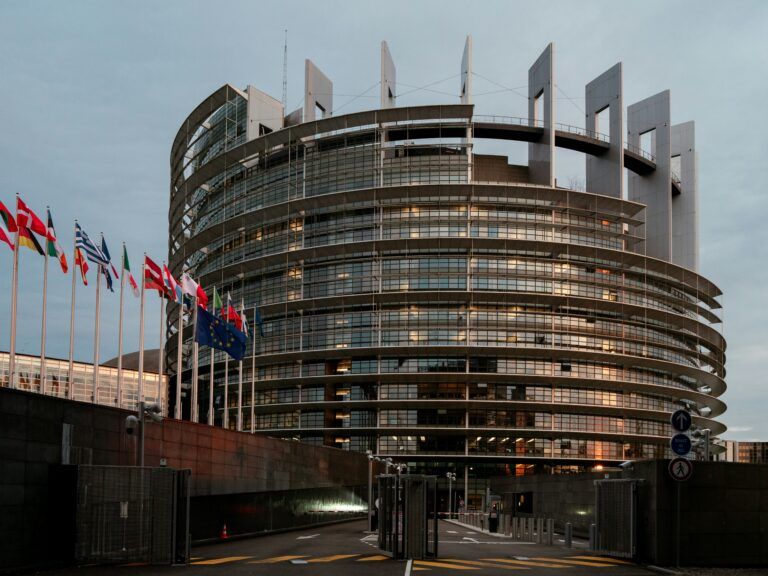(Brussels, March 21, 2024) – The European Parliament should formally adopt the landmark draft European Union (EU) corporate due diligence law in its final plenary session in April before it disbands for EU-wide elections, Climate Rights International said today. On March 19, the Parliament’s legal affairs committee approved the Corporate Sustainability Due Diligence Directive (CSDDD), which is aimed at protecting human rights and the environment while limiting climate change, and sent it to the full Parliament for a final vote.
“Following months of shameful political and diplomatic obstructionism, the EU finally looks set to pass the groundbreaking new EU corporate sustainability and due diligence law,” said Lotte Leicht, Advocacy Director at Climate Rights International. “But it should have been much stronger, as Germany, France, Italy, and others disregarded previous negotiations, compromises, and settled agreements to significantly decrease the law’s scope. Only strong action and unwavering determination by the Belgian EU presidency salvaged some key aspects of the law.”
What was supposed to be the final draft of the CSDDD was originally agreed to in December 2023, following more than two years of rigorous negotiations among EU member states, the European Commission, and the European Parliament. However, the hard-won consensus was overturned earlier this year when at the last minute Germany’s Free Democratic Party (FDP), the smallest member of the government coalition, objected to the law. The German Chancellor, Olaf Scholz, failed to overrule the FDP and other EU governments soon followed suit, putting in jeopardy the qualified majority support among EU member states necessary to adopt the law.
Aggressive corporate lobbying and political maneuvering have led to a significant reduction in the scope of the law. The thresholds for corporations covered have been raised, limiting the CSDDD’s applicability to large companies with over 1,000 employees and EUR 450 million in net turnover, thus excluding an estimated 65 percent of the companies that would have been covered under the December agreement. However, due diligence obligations will extend to direct partners of large companies covered by the law.
The provision in the December draft of the CSDDD to cover entire problematic sectors such as textiles, mining, and agriculture, regardless of company size or turnover, has been deleted, meaning that only large corporations in those sectors are required to meet the law’s requirements.
While the latest version still requires companies to adopt and implement climate transition plans in line with the Paris Agreement, critical provisions like aligning financial incentives for company executives with those transition plans have been removed. Moreover, companies have been granted extended timelines to comply with the CSDDD, further delaying the corporate action and accountability so urgently needed to address rights abuses, environmental degradation, and climate change.
Although the December text was watered down on critical points, the CSDDD nevertheless represents an important step forward in establishing legally binding human rights and environmental due diligence obligations for larger companies operating throughout the EU, said Climate Rights International. It will require larger companies to identify, mitigate, and rectify adverse human rights and environmental impacts, both within their own operations and across their expansive supply chains.
The new law will also provide victims of harms with enhanced access to justice and remedies. Companies can be held liable for their actions and due diligence failures. Those affected by violations, including under certain conditions trade unions and non-governmental organizations, will be able to pursue their claims under the CSDDD.
“Despite its flaws, the EU’s due diligence law will set an important and legally binding benchmark for human rights, environmental protection, and sustainable supply chains by big companies operating in the world’s largest internal market,” said Leicht. “EU ministers and lawmakers should now adopt the law without further delay.”
Climate Rights International called on the EU and all its member states to follow up passage of the CSDDD by taking a leadership role in the United Nations’ Open-ended Intergovernmental Working Group process to negotiate an international legally binding instrument on business and human rights, and to ensure that environmental and climate protection are included.
“For too long, corporate profits have trumped the protection of human rights, the environment, and concerns about climate change,” said Leicht. “The lack of legally binding standards regulating companies has enabled far too many to operate with impunity at the expense of fundamental rights and the health of people and the planet.”
Photo Credit: European Parliament. Photo by Lukas S via Unsplash.







